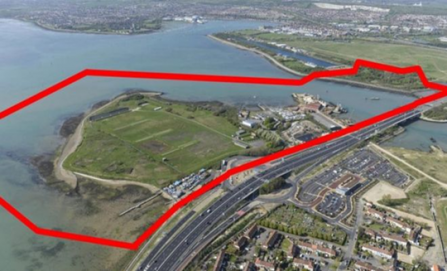In an attempt to squeeze even more homes onto Portsea Island, Portsmouth City Council have made public their plans to build a ‘car-free’ super-peninsula on the ‘protected’* mudflats of Portsmouth Harbour.
But these plans would destroy precious, vibrant natural habitats – seriously harming the Solent’s wildlife and undermining Portsmouth’s own stated ambitions to tackle environmental issues.
The mudflats themselves are alive with wildlife and provide a nursery ground for fish like Bass. They also form a network of feeding areas crucial for the thousands of birds which flock here every autumn and winter. Portsmouth boasts internationally important populations of black-tailed godwit, brent geese and other waterbirds. The Tipner area in particular is known to be a point of connection between Portsmouth and Langstone Harbours for these birds, so it plays a particularly special role.
On top of this, disturbance of the mudflats risks releasing carbon currently locked away and reduces the ability to store more. The loss of natural habitat will increases the danger of erosion, while additional housing here will also inevitably increase the strain on our already struggling water treatment infrastructure, limited water supplies and increase recreational pressure on Portsmouth’s few green patches.
Even more fundamentally, the plan to build a defended new urban area in this location is highly unsustainable, given the inevitable rises in sea-level.

